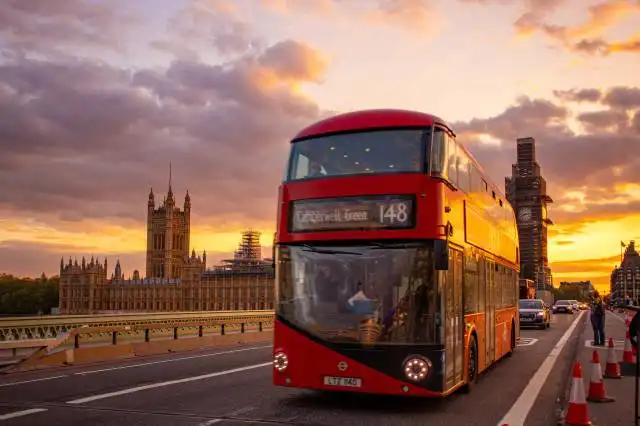Start an Ecotour Business
Unleash Your Inner Adventurer: Dive into the Ecotourism Business
| Updated


ECOTOUR BUSINESS
Embarking on an ecotourism business is like blending your love of nature, travel, and sustainable practices all into one exciting package! A great example of thoughtful entrepreneurship, this business is all about arranging travel-oriented experiences that promote environmental conservation and educate visitors about the ecological and cultural significance of the area. Expect to wear the hat of an entertainer, nature guide and sometimes, a environmental educator, with the world being your office! Sounds pretty adventurous, right? But remember, your ultimate goal is to advocate for nature preservation while offering tourists a memorable and guilt-free travel experience.
Jump to Business Plan
RELATED BUSINESS IDEAS
Browse ALL Hospitality & Leisure Ventures Business Ideas
Discover Your Perfect Domain
Unlock the door to your online success with our hand-picked selection of premium domain names. Whether you're starting a new venture or rebranding an existing one, the right domain can set the tone for your digital presence. Browse through our curated list, each with its unique potential to enhance your brand's visibility and credibility.
ECOTOUR MINI BUSINESS PLAN
This a quick reality check to help you identify the strengths and weaknesses of your business concept before you dive in.
Expected Percent Margin:
- Gross Margin: 55-65%
- Net Profit Margin: 20-30%
Earnings Expectations:
- Daily Earnings: $150 - $400 (based on 5 to 10 tourists per day)
- Weekly Earnings: $1,050 - $2,800
- Monthly Earnings: $4,500 - $12,000
- Annual Earnings: $54,000 - $144,000 (considering operating 9 months of the year)
Please note that these earnings projections do not assume any limit on the number of tourists you can attract and host. Your actual earnings could potentially be higher.
Actions to Hit Those Numbers:
Developing Tours:
- Create Tours: Develop various tour packages that cater to a range of preferences and budgets.
- Work with Locals: Collaborate with local businesses and individuals to deliver a holistic and memorable experience.
Marketing and Customer Acquisition:
- Website and SEO: Develop a SEO-optimized website that ranks high on Google for related keywords.
- Social Media: Regularly post interactive content on social media channels targeting tourists.
Hiring and Training Guides:
- Staffing: Employ passionate and knowledgeable tour guides.
- Training: Regularly train guides to understand the eco-friendly mission of your business and to provide excellent customer service.
Cost Control:
- Maintenance: Regularly maintain your transport vehicles to prevent unexpected repair costs.
- Insurance: Make sure your business is adequately insured to avoid incurring significant costs in case of accidents.
Growing the Business:
- Referrals: Establish a referral program to encourage satisfied customers to refer others.
- Partnerships: Collaborate with hotels and travel agencies to increase your reach and acquire more customers.
Important: These are generalized estimates and the actuals can vary depending on the location, market demand, and other factors. It's always a good idea to seek advice from a business or financial advisor.
NOT WHAT YOU HAD IN MIND? Here are more ideas



Browse ALL Hospitality & Leisure Ventures Business Ideas
Grab Your Business Website Name
Before you get caught up in the whirlwind of setting up your business, invest in a domain name. It's a small but significant step that lays the foundation for your brand and makes it easier for customers to find and trust you. Just like you wouldn't build a house without securing the land first, don't build a business without securing your domain name.
"Why? Can't that wait?" Here's why it shouldn't
Step 1: Determine if the Business is Right for You
Breakdown of Startup Expenses
Before starting an ecotour business, it is important to understand the startup costs associated with the venture. This includes the cost of any necessary licenses, permits, and insurance. Additionally, the cost of any equipment, such as vehicles, boats, and camping gear, must be taken into account. It is also important to consider the cost of any marketing materials, such as brochures, websites, and business cards. Finally, the cost of any necessary training and certifications must be taken into account.
Breakdown of Ongoing Expenses
Once the business is up and running, there are a number of ongoing expenses to consider. This includes the cost of any necessary repairs and maintenance for equipment, as well as the cost of any necessary supplies. Additionally, the cost of any necessary insurance must be taken into account. It is also important to consider the cost of any marketing materials, such as brochures, websites, and business cards. Finally, the cost of any necessary training and certifications must be taken into account.
Examples of Ways to Make Money
There are a number of ways to make money with an ecotour business. One way is to offer guided tours of natural areas. Additionally, the business can offer educational programs and workshops. The business can also offer equipment rentals, such as boats and camping gear. Finally, the business can offer merchandise, such as t-shirts and hats, to customers.
Step 2: Name the Business
When it comes to naming your ecotour business, it is important to choose a name that is memorable and captures the essence of your business. It should be unique and easy to pronounce. Additionally, it should be something that can be used in marketing materials, such as a logo or a tagline. Consider using words that evoke a sense of nature, such as “eco”, “tour”, “wild”, “jungle”, “safari”, or “adventure”. Additionally, you may want to consider using a play on words or a pun to make your business name stand out.
When deciding on a name, it is important to make sure that it is not already taken. You can do this by searching online and checking with the local government to make sure that the name is available and not already trademarked. Additionally, you may want to consider registering the name with a domain name registrar to ensure that no one else can use it. Once you have chosen a name, you can register it with the local government and trademark it to protect it from being used by anyone else.
You may also want to consider creating a logo or tagline to accompany your business name. This can help to create a visual representation of your business and make it easier for customers to remember. Additionally, it can be used in marketing materials, such as business cards, flyers, and websites. When creating a logo or tagline, make sure that it is simple and easy to understand. Additionally, it should be something that reflects the values and mission of your business.
Finally, you may want to consider creating a slogan or motto for your business. This can be used in marketing materials and can help to convey the message of your business in a few words. Additionally, it can help to create a sense of unity among your customers and employees. When creating a slogan or motto, make sure that it is memorable and reflects the values of your business.
Step 3: Research the Market
Identify Potential Customers
Before launching an ecotourism business, it is important to identify the potential customers. Researching the market and customer demographics is essential to determine the target market for the business. Consider what type of customers would be interested in the ecotourism business and what type of activities they would be interested in. Additionally, research the current trends in the ecotourism industry to determine what type of activities are in demand and what type of activities customers are looking for.
Research Competitors
It is also important to research the competition in the ecotourism industry. Research the competitors in the area and determine what type of services they offer and what type of activities they offer. Additionally, research the pricing of the competitors and determine how to price the services offered by the ecotourism business. This will help to ensure that the business is competitive and can attract customers. Additionally, research the marketing strategies used by the competitors and determine how to differentiate the ecotourism business from the competition.
Step 4: Create a Business Plan
Outline Business Goals
When creating a business plan, it is important to outline the goals of the business. This includes the type of ecotourism business, the target market, the services and products offered, and the desired outcome. It is important to be realistic about the goals of the business and to have a plan for how to reach them. Additionally, it is important to determine the amount of capital needed to start the business and the expected return on investment.
Establish a Budget
Once the goals of the business have been outlined, it is important to create a budget. This includes the startup costs of the business, such as the cost of equipment, marketing, and advertising, as well as the ongoing costs of running the business, such as salaries, insurance, and other operational costs. It is important to be realistic about the budget and to make sure that the business is able to cover all of its costs. Additionally, it is important to consider the potential income of the business and how it will cover the costs of running the business.
Step 5: Obtain Licenses and Permits
Determine Necessary Licenses and Permits
Before applying for any licenses and permits, it is important to research the local, state, and federal laws and regulations that may apply to an ecotour business. Depending on the location, there may be different licenses and permits required for different activities, such as operating a business, selling tickets, or leading tours. It is also important to consider any special permits that may be required for activities such as camping, fishing, or hunting. Additionally, it may be necessary to obtain a business license and any other permits required to operate a business in the local jurisdiction.
Apply for Necessary Licenses and Permits
Once the necessary licenses and permits have been determined, the next step is to apply for them. This process may vary depending on the location and the type of license or permit being applied for. In some cases, it may be necessary to fill out an application, submit supporting documents, and pay a fee. In other cases, it may be necessary to attend an in-person meeting or interview. It is important to ensure that all of the necessary licenses and permits are obtained before launching the ecotour business. Additionally, it is important to keep track of the expiration dates of any licenses and permits and to renew them as needed.
Step 6: Secure Funding
Identify Potential Sources of Funding
When starting an ecotour business, it is important to identify potential sources of funding. Depending on the size of the business, the amount of funding needed can vary. Potential sources of funding include traditional bank loans, venture capital, crowdfunding, and grants. It is important to research the different types of funding and the requirements for each. Additionally, it is important to understand the terms of the loan and the repayment schedule.
Apply for Funding
Once potential sources of funding have been identified, the next step is to apply for funding. This process can be time consuming and involve a lot of paperwork. It is important to make sure all the required documents are filled out correctly and that all the necessary information is included. Additionally, it is important to make sure all the information is accurate and up to date. Once the application is complete, it should be submitted to the funding source for review. After the review process is complete, the funding source will decide whether or not to approve the loan.
Step 7: Develop a Website
Creating a website is a great way to reach potential customers and to showcase your business. It is important to create a website that is user-friendly and informative. Here are some tips for creating an effective website:
- Choose a domain name that is easy to remember and reflects your business.
- Make sure the website is easy to navigate and has a modern design.
- Include a contact page with your business’s contact information.
- Include a blog page with helpful articles related to ecotourism.
- Include a page with photos and videos of your tours.
- Make sure the website is optimized for mobile devices.
- Include a page with customer reviews and testimonials.
- Include a page with pricing information and payment options.
- Make sure the website is secure and protected from cyber threats.
Step 8: Market Your Business
Tips for Effective Marketing
Marketing your business is essential for success. Here are some tips for effective marketing:
- Create a marketing plan that outlines your target audience, budget, and goals.
- Utilize social media platforms to reach potential customers.
- Create content that is engaging and informative.
- Develop relationships with influencers in the ecotourism industry.
- Develop relationships with local businesses and organizations.
- Participate in local events and festivals.
- Utilize email marketing to reach potential customers.
- Create a referral program to encourage word-of-mouth marketing.
- Utilize search engine optimization to increase visibility.
Step 8: Market the Business
Develop a Marketing Plan
Developing a marketing plan is essential for any business. It should include a detailed description of the target market, a budget for marketing activities, and a timeline for implementation. Additionally, it should include a strategy for reaching potential customers and a plan for tracking the success of marketing efforts. It is important to remember that marketing is an ongoing process and should be regularly evaluated and adjusted as needed.
Utilize Social Media
Social media is a powerful tool for marketing an ecotour business. Platforms such as Facebook, Twitter, and Instagram can be used to reach potential customers, promote special offers, and announce upcoming tours. Additionally, social media can be used to showcase customer reviews and testimonials, which can help build trust and credibility. It is important to remember that social media is a two-way street and should be used to engage with customers and build relationships.
Step 9: Launch the Business
Launching a business can be a daunting task, but with the right preparation, it can be a success. Before launching, it is important to have a clear plan in place. This plan should include a marketing strategy, a budget, and a timeline for when the business will be officially open. Additionally, it is important to have a team of people in place to help with the launch. This team should include people who are knowledgeable about the business, such as an accountant, a lawyer, and a marketing specialist. It is also important to have a website and social media presence in place before launching. This will help to spread the word about the business and attract potential customers. Finally, it is important to have a plan in place for how to handle customer feedback and complaints. This will help to ensure that customers are satisfied with the business and will help to ensure the business’s success.
EXPLORE MORE CATEGORIES
Browse ALL Business Idea Categories
TAKE THE NEXT STEPS










